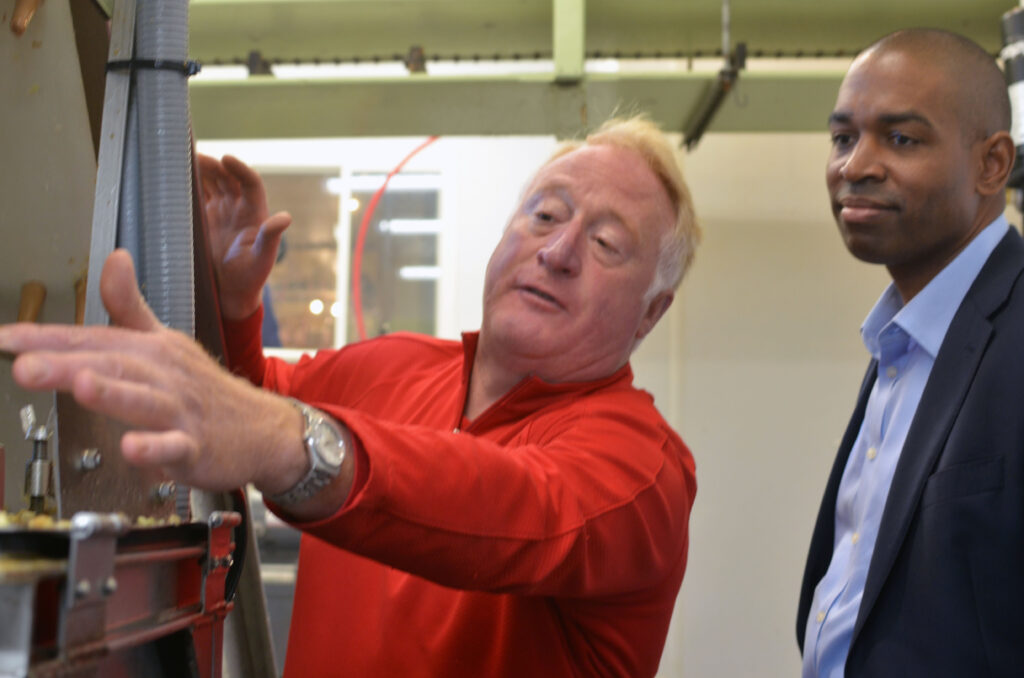
Rep. Delgado hears why seasonal visas are lifeline to local employers
By KEVIN LIMITI • Special to www.AllOTSEGO.com
Representative Antonio Delgado traveled to Fly Creek last week to meet with Fly Creek Cider Mill owner Bill Michaels, touring the facility and discussing the challenges confronting small businesses in Otsego County.
While the pair discussed topics ranging from President Biden’s bipartisan infrastructure package and supply chain concerns, Rep. Delgado and Mr. Michaels spoke at length about hiring concerns and how the federal government’sH-2B visa program helps keep the Cider Mill humming.
It’s a complicated process: H-2B allows domestic employers to hire a certain number of non-immigrant workers on a seasonal basis, contracted for eight to nine months, and after the United States Department of Labor issues a certificate of need. Work has to be open first to any and all United States citizens and, if a citizen accepts the seasonal contract, the number of available H-2B positions decreases accordingly. Among the list of requirements: Domestic employers must pay the prevailing wage for the open position, as well as provide housing and transportation for all workers.
“We have never had any United States citizens apply for these positions,” Mr. Michaels said.
You have reached your limit of 3 free articles
To Continue Reading
Our hard-copy and online publications cover the news of Otsego County by putting the community back into the newspaper. We are funded entirely by advertising and subscriptions. With your support, we continue to offer local, independent reporting that is not influenced by commercial or political ties.

